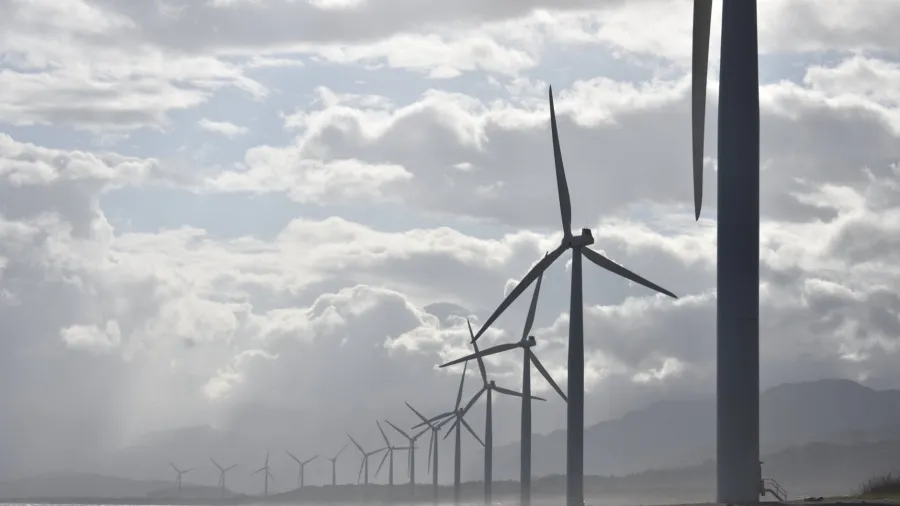
How the Asian energy insurance sector is making moves despite shifting demands
NOCs will still explore oil & gas options, but some investments will be directed at renewable projects.
The Asian energy insurance sector has benefitted from higher regionalised underwriting and claims authority as well as being in close proximity to clients, which has resulted in focused and timely underwriting services to local and regional brokers, according to Munich Re Syndicate Asia energy and engineering underwriter Timothy Lee.
The sector remains diverse and reinsurance-driven, he said, adding that Singapore remains a vital reinsurance hub to service energy risks and support local offices, alongside other players in the North Asia and subcontinent region.
“In addition, loss adjustors, surveyors and lawyers have their regional headquarters operating out from Singapore in order to be closer to energy clients,” Lee explained.
The reinsurer is seeing the same trends for Asia and the rest of the world as market conditions continue to harden, albeit at different degrees. “In the upstream space where Munich Re Syndicate is one of the leading risk carriers, this hardening is limited due to excess market capacity. Whilst the sector remains broadly profitable in the last few years, there is already a greater frequency of larger losses across the entire Asia Pacific region in 2020 and 2021.”
Moreover, volatile oil prices, supply chain disruptions and challenges in shuffling personnel across borders due to COVID-19 will continue to loom over the sector in Asia and the rest of the world.
Insurance Asia talked to Lee to know more about energy insurance, the current market conditions in Asia compared to the rest of the world, the effect of the demand for renewables and low-carbon initiatives to the market, and where the sector is headed as the decade unfolds.
Can you give a brief explanation of energy insurance, and what makes it particularly interesting?
Certain energy carriers may define energy differently but broadly speaking, there are two main classes of energy insurance – upstream and downstream. Within the upstream sector, key coverages include operator’s extra expense (well control), contractor fleets (mobile offshore units - fixed or floating offshore installations including subsea and pipelines), offshore construction (including yard risks) and certain onshore property including land rigs and gas processing plants.
The downstream sector focuses on anything related to the post-production of crude oil and natural gas activities involving assets such as refineries, petrochemical plants, LNG processing plants, storage tanks, et cetera.
Whilst most risks are placed independently into its respective traditional sectors, integrated/ packaged energy solutions are not uncommon. Associated liability risks including pollution may be covered or placed separately into the casualty market. Many energy carriers are now also able to underwrite some form of renewable energy risks.
The energy insurance sector is interesting as clients in each part of the energy value chain and subsector will have different needs and risk considerations. There is no “one size fits all” solution for the energy insurance sector.
In your opinion, which Asian market is making the most significant strides in energy insurance, and how can other markets follow the lead?
The Chinese energy insurance market has seen the most changes in recent years. This is driven by the desire of Chinese carriers to grow market share and the willingness of treaty (re)insurers to ride on the growth of the Chinese market. With the exception of major Chinese risks, it is not uncommon for other Chinese risks to be led by and placed mainly--if not entirely-- with domestic carriers. This includes Chinese Interest Abroad (CIA) risks. More recently, we have also seen Chinese carriers taking an interest in writing facultative energy risks for non-Chinese-related-risk to fulfil their growth ambitions.
Whilst this augurs well for the overall growth of Asian energy insurance capacity, this increased competition has also resulted in softer market conditions compared to the rest of the world.
How do you see the demand for renewables and low-carbon initiatives affecting energy insurance for this decade? Do you think the shift would only accelerate, or will it slow down at some point in the future?
We feel that the contribution of renewables to the energy mix will increase over time although oil and gas will remain an important source of energy. We still expect to see investments in exploration and production activities in Asia especially by the national oil companies (NOC). However there may be fewer large scale projects and increased focus will be on the small to mid-tier sized and asset life extension projects. Some investments will be channelled towards renewable projects.
The shift toward renewable energy will accelerate in the near and medium term. We have seen a focus on “green recovery” by many governments as part of their net-zero commitments and post COVID-19 recovery plans. Whether this shift will continue in the future largely depends on the economics and efficiency of the technology. Factors such as energy security, technology constraints, geopolitical and local factors may also weigh down the shift.
In return, do you plan on altering your portfolio on oil & gas and non-renewables?
It is important to note the oil and gas sector is rapidly increasing its investment in low-carbon technologies and taking the lead in developing new green solutions. Therefore, the energy insurance sector is more focused on how we can take positive action to support our clients towards a lower emission environment and achieving a more diverse energy mix, rather than planning to alter our portfolio.
Munich Re Syndicate remains committed to supporting our oil and gas clients in the energy transition process. We view this as a natural progression as many of our clients are already operating in both the traditional energy and renewable space due to synergies and similarities in construction methods and expertise.
Overall, we see this as an opportunity to adapt to the evolving needs of our clients and to diversify our energy portfolio.
How have you been scaling your portfolio in response to these changes, and how receptive have your clients been?
We are looking to expand our footprint in the renewable energy space by leveraging our expertise and experience in the marine and energy space to tap on this growth industry. There is huge growth potential and by doing so, we are journeying with our clients in the energy transition process. The team has delivered strong technical underwriting for this demanding sector throughout the market cycle and is well positioned to support our energy clients on the challenges ahead.
Munich Re Syndicate is a participant of the Lloyd's Asia Onshore Renewable Energy Construction Facility. This is a collaboration of certain syndicates based in Singapore to provide increased market capacity of up to US$100m. We will look for opportunities to work with like-minded partners.
As a major global reinsurer, we will continue to leverage our expertise in climate change and data analytics to enable the creation of new solutions that will help the sustainability drive.


















 Advertise
Advertise








